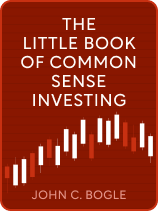

This article is an excerpt from the Shortform book guide to "The Little Book of Common Sense Investing" by John C. Bogle. Shortform has the world's best summaries and analyses of books you should be reading.
Like this article? Sign up for a free trial here.
What is the difference between bond ETFs vs. bond mutual funds? Which delivers a higher return on investment?
Bond mutual funds are actively managed funds where investors’ capital is distributed among select securities. In contrast, bond ETFs purchase securities that reflect certain bond indices. According to John Bogle, the author of The Little Book of Common Sense Investing, bond index funds deliver better returns than bond mutual funds.
Here’s why bond ETFs are more profitable than bond mutual funds, according to Bogle.
Bond Mutual Funds vs. Bond Index Funds
What is the difference between bond ETFs vs. bond mutual funds? Just like you can purchase equity via actively managed mutual funds and index funds, you can also purchase bonds via bond mutual funds and bond index funds. In the case of bond mutual funds, managers actively purchase and sell bonds using fund assets, whereas bond index funds purchase bonds that reflect certain bond indices. Like stock mutual funds, bond mutual funds are more expensive because they are actively managed.
In his book The Little Book of Common Sense Investing, John Bogle claims that bond index funds generate better returns for investors. To defend this claim, Bogle examines the two primary types of bond funds—government and corporate bonds—in addition to three maturity segments—short-term, intermediate-term, and long-term. Further, he uses SPIVA to compare bond mutual funds in these six cross-sections to similar bond index funds.
(Shortform note: These terms have fixed lengths: Short-term bond funds mature in one to five years, intermediate-term bond funds mature in five to 10 years, and long-term bond funds mature in more than 10 years. Although long-term bond funds can offer the highest return, they’re also susceptible to long-term fluctuations in interest rates, making them more volatile.)
From 2001 to 2016, SPIVA demonstrates that 85% of bond indices outperformed similar bond mutual funds. In particular, long-term bond indices outperformed 97% of long-term bond mutual funds, both in government and corporate segments.
(Shortform note: According to SPIVA’s 2022 mid-year report, this trend has continued: Considering risk-adjusted returns, 96% of bond indices outperformed similar government bond funds from 2007 to 2022. General corporate grade funds fared slightly better, but 72% of bond indices still outperformed similar corporate grade funds over the same period.)
According to Bogle, bond index funds are a better investment than bond mutual funds for the same reason that equity index funds outperform equity mutual funds: They have lower expense ratios. The average bond index fund’s expense ratio was 0.1% annually, while the average bond mutual fund’s expense ratio was 0.75% annually.
(Shortform note: Bond funds’ expense ratios have steadily decreased since 2000 in the US, both for bond mutual funds and index funds. According to one report, the average expense ratio of actively managed bond funds in 2021 dropped to 0.46%, compared to 0.06% for bond index funds. So, Bogle’s data are dated.)

———End of Preview———
Like what you just read? Read the rest of the world's best book summary and analysis of John C. Bogle's "The Little Book of Common Sense Investing" at Shortform.
Here's what you'll find in our full The Little Book of Common Sense Investing summary:
- A simple winning strategy for novice investors
- Why index funds are superior to mutual funds
- Why bonds belong in your investment portfolio






